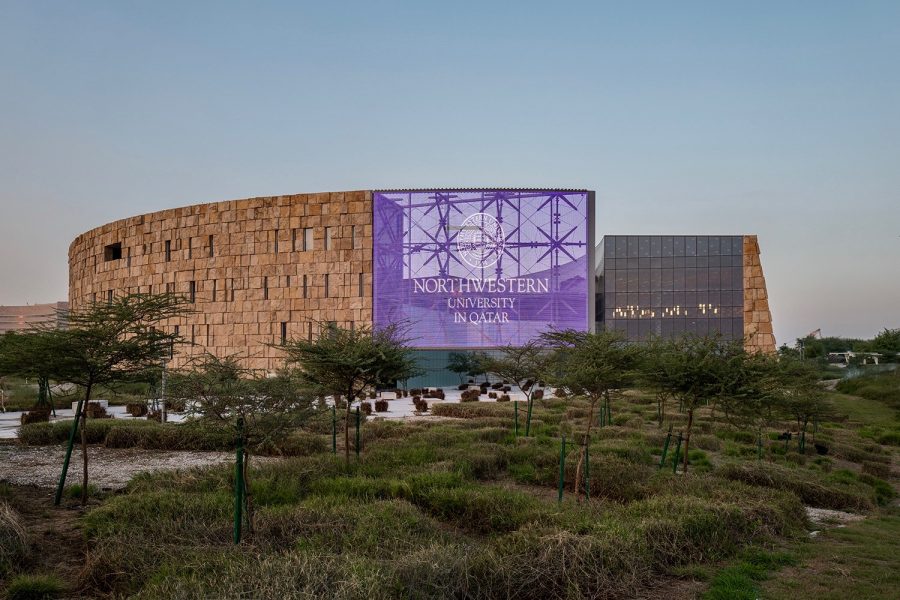NU-Q students, faculty adjust to online classes weeks before Evanston campus
Northwestern University in Qatar. The government there announced a nationwide closure of schools and universities that started March 10.
April 6, 2020
On March 9, students at Northwestern University in Qatar received an email informing them that classes for the rest of the week had been postponed and would resume the following Sunday in the form of online classes.
NU-Q, which runs on the semester system, had just resumed classes after spring break when the Qatari government suspended all private and governmental schools. Since then, classes have been online, first through the online video conferencing program BlueJeans, and now through Zoom.
“One thing is for you to go into a class knowing you signed up for an online class,” NU-Q Prof. João Queiroga said. “Another thing is for you to sign up for a regular in-person class, and then the class is switched to an online learning environment.”
That is what happened to first-year students enrolled in MIT190, a class which typically introduces students to filmmaking technologies like on-location audio recording equipment. Now, Prof. Rana Kazkaz, who teaches the course, said the class has been restructured to allow students to use their phones.
“Beyond just figuring out how to redesign the courses, the challenge was dealing with the disappointment of students who wanted to complete the course as it was previously laid out for them,” Kazkaz said.
For freshman Paribesh Sitoula, the changes in the syllabus have “taken away” from the experience NU-Q offers. To complete his coursework, Sitoula said he must now rely on YouTube clips and footage from various news outlets.
Queiroga, who teaches a docu-fiction course, said he began using an online tool called Screening Room to help share and evaluate student work. Similarly, Kazkaz’s course on directing has proceeded with online rehearsals for student actors who can no longer meet in person.
“When things go back to normal, whatever normal is, we will have to find a way to give them that experience they missed,” Kazkaz said.
However, for seniors like Hazar Kilani, making up for in-person coursework is easier said than done. Kilani, who lives off campus with her family, said she is still adjusting to working in a home she shares with grandparents and siblings, and feels she is doing much worse academically as a result.
Kilani said her team in a documentary filmmaking class was unable to work on their initial project, and is now using Zoom interview footage for their final product.
“We were like, ‘I can’t even visualize this,’ when trying to write the script,” Kilani said. “We can’t even sit together to edit it.”
Queiroga said the ongoing pandemic, however, has also given faculty and students a common arena in which to empathize with each other, and has provided opportunities to break barriers between teachers and students.
Sophomore Roja Pande said the relatively small size of NU-Q has helped the community grow closer. The student affairs department does weekly check-ins with students by calling every individual to ask how they’re doing, something that would be difficult in a larger school, she said.
“It’s super nice to see how the community has come together,” said Pande, who is unable to go home due to restrictions on travel to her country. “A lot of the students always say, ‘We’re here for each other.’ It makes you feel like you’re not alone.”
For Queiroga, the move to a virtual landscape has increased mentorship between professors and students. He said having a digital space has increased one-on-one interactions with students who now have constant access to his private Zoom room, a virtual meeting space that anyone with the correct passcode can utilize.
“Both (faculty and students) have to be more flexible,” Queiroga said. “Both of us have to be more understanding, and both of us have to be more kind with one another.”
Email: anushuya@u.northwestern.edu
Twitter: @anushuyathapa



